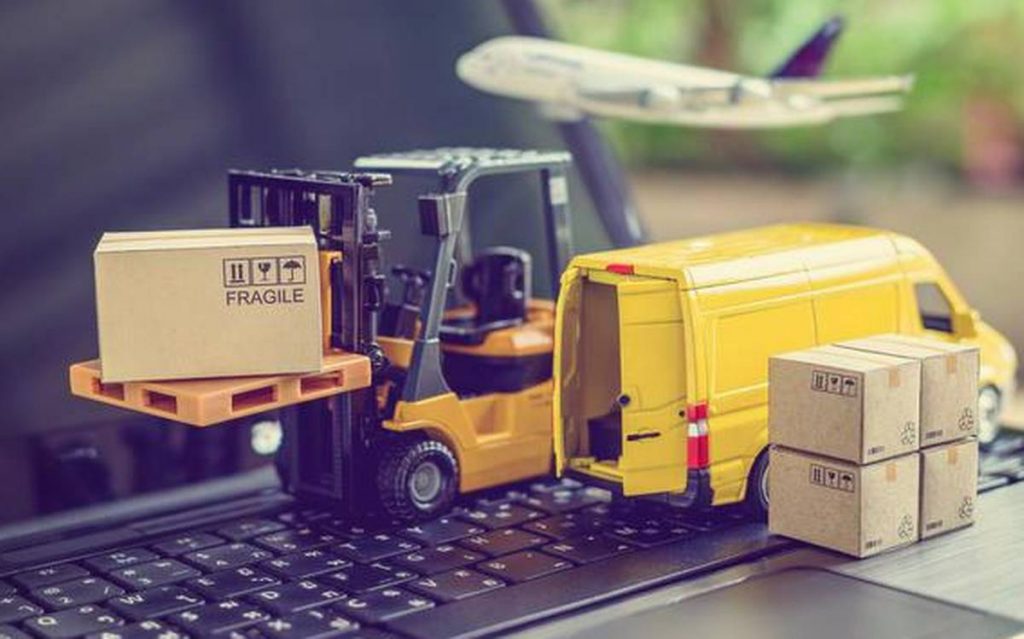Logistic Industries To See AI Revenue Growth

With the growth of eCommerce during the Covid pandemic, even the Transportation and Logistics sector saw huge growth. With the rapid growth in the Transportation and Logistics sector, it is important for it to indulge in some smarter digital transformations to sustain the growth. The same was enforced by McKinsey that stated that it is important for the industry to go digital completely in order to secure its future. At the current time, it is crucial for logistics companies to innovate themselves digitally by updating the IT infrastructures, warehousing systems and fleet management. It is high time that logistic industries invest especially in the digital transformation of a supply chain to get a good return on investment.
Understanding the importance of digital transportation in the logistic industry, logistic companies like FedEx have started working to improve their analytics. Recently, FedEx has joined Microsoft to achieve the same. Following the footsteps of FedEx, other logistic companies like YunExpress are also innovating their digital implementation in the company. Many logistics and transportation companies are using machine learning and artificial intelligence (AI) to provide satisfactory services to customers.
How AI Is Used In Logistics And Transportation Sector?
In both the logistics and transportation sectors, artificial intelligence is implemented in a wide variety of ways. For instance, it makes it possible for customers to track the courier in real-time and such services are provided by most of the courier companies like ePacket. In addition to that, AI is also used to analyze the global shipping conditions like natural disasters that may hit the shipping route and other time-sensitive elements. In addition to that, companies like FedEx, Amazon and Wing Aviation LLC. are experimenting with drone delivery pilots to reduce the dependence on manual workers and to speed up the process. AI can further be used in the logistics sector for planning and scheduling, sales and marketing, warehouse management, customer care and shipping and delivery.
AI To Drive More Revenue In Logistic Companies
The growth of logistic sectors is grabbing many eyeballs and huge investments are made in the sector to include AI in it to make the sector more efficient. It is predicted that the inclusion of Artificial Intelligence in the Logistics and Supply Chain market will experience a CAGR of 24%. Currently, North America has implemented artificial intelligence to the maximum level, followed by Europe and Asia-Pacific. It is also believed that by 2030, the usage of robotics will increase to an extent that one-third of the workers working in the logistic sectors will have to switch occupations. It is also believed that the inclusion of artificial intelligence will drive more revenue in the sector. Studies have shown that implementing artificial intelligence in the logistic sector can generate up to $1.3 trillion to $2 trillion per year.
Using artificial intelligence will automate plenty of tasks and this further reduces the time consumed to perform the actions, that in turn, will save money. Google and Amazon are heavily investing in artificial intelligence for the same reason. Transportation costs can be reduced by automated warehouses. For instance, artificial intelligence can be used to predict the demand of the products and this information can further be used for planning the logistics which will reduce the transportation costs.
Also, autonomous vehicles can be run using artificial intelligence that can save both time and money for business owners. However, this technology is still evolving and it might require a few more months or years for it to become a global trend across multiple logistic companies. The efficiency can further be enhanced by artificial intelligence by automating the tasks that have a recurring pattern to improve accuracy and lower the cost and save time. Implementing the same, UIPath has developed robots for carrying out their back-office tasks and the company saw a growth in its Annual Recurring Revenue of $200 million.
Examples of increasing revenue by engaging artificial intelligence in the logistics and transportation sector can be studied through the success stories of companies like Ocado, Wayne, Rolls-Royce, Integrated Roadways company and UI Path. AI not only helps the business owners but also the customers by improving their experience through personalization to meet their needs based on their buying habits and preferences.

“Evil coffee nerd. Analyst. Incurable bacon practitioner. Total twitter fan. Typical food aficionado.”











